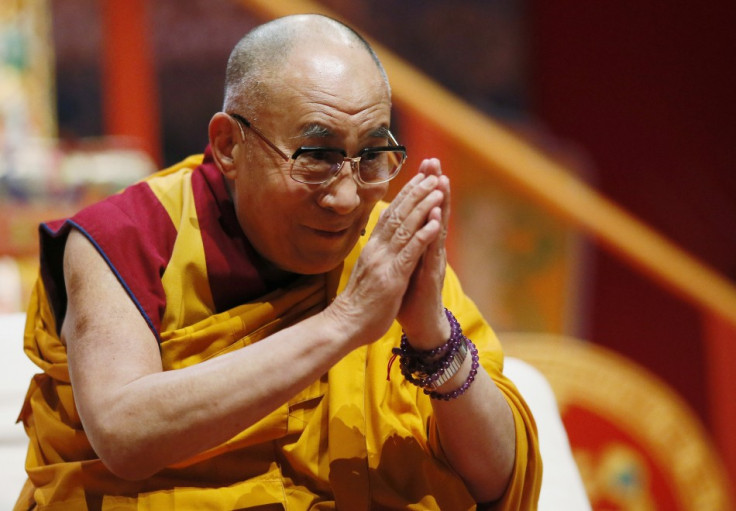Dalai Lama Praises 'Open Minded' President Xi Jinping during India-China Talks

The Dalai Lama has praised Chinese president Xi Jinping as being "more open-minded" than his predecessors, urging him to learn from his trip to India how different ethnic and religious groups can live in harmony in a single country.
Tibet's exiled spiritual leader, who was given shelter in India after he fled Tibet in the wake of a failed rebellion against Chinese occupation in 1959, spoke as Xi was holding talks with Indian Prime Narendra Modi in New Delhi.
"Xi Jinping's approach [is] more realistic, more open-minded," the Dalai Lama or Tenzin Gyatso, said.
"I think the Chinese president should learn some of India's experience," he continued. "Look, east India, south India, west India, north India, different language, different script. But no danger of separation. Isn't it? Democratic rule, rule of law and free media..."
The Nobel Peace Prize winner runs Tibet's exiled government from the northern town of Dharamsala and his presence in India has long been source of frictions between Delhi and Beijing.
The Chinese government claims that the spiritual leader's campaign for a greater autonomy for Tibet within China is in fact a covered separatist effort.
Meanwhile in Delhi dozens of Tibetan protesters managed to bypass tight security and staged a brief anti-China demonstration, chanting "China: Hands off Tibet," and ''We want justice: Free Tibet," outside the building Xi and Modi were meeting in.
The Dalai Lama also urged Xi and Modi to resolve a long festering territorial dispute over the unsettled Himalayan border between the two countries, encompassing large parts of the Tibetan plateau.
"Actually the Tibetan problem [is] also a problem of India. Before 1950, you see the whole northern border, really peaceful, no single soldier. So India's problem," he said.
"So sooner or later you have to solve these problems, not by force but by understanding and talk. Understanding comes through talk, only through personal contact."
Earlier today, in the latest flare up of tensions, Indian army sources said that more than 1,000 Chinese soldiers crossed 5km (3.18 miles) into Indian territory and refused to retreat.
India claims that China occupies 38,000 sq km (15,000 sq miles) of territory in the Aksai Chin plateau in the western Himalayas, while China says that 90,000 sq km of land in India's northeastern state of Arunachal Pradesh belong to Beijing.
Despite the diplomatic tensions, talks in Delhi were said to be focused on Sino-Indian trade that topped $70bn (£43bn) in 2013.
© Copyright IBTimes 2025. All rights reserved.




















